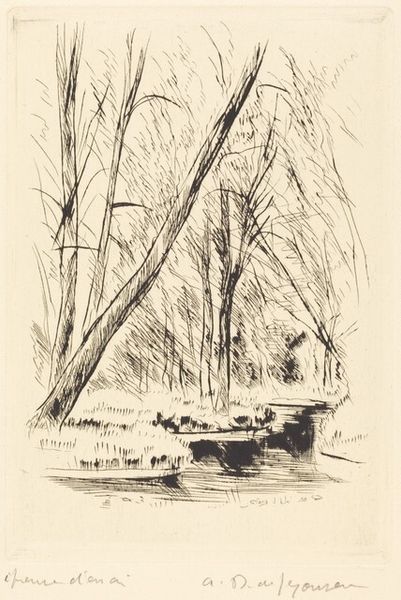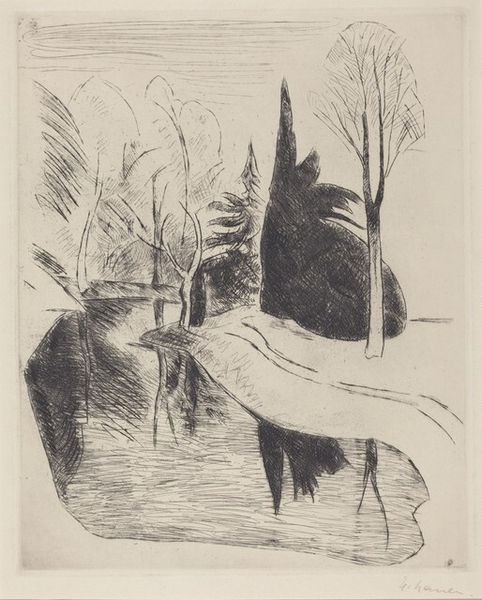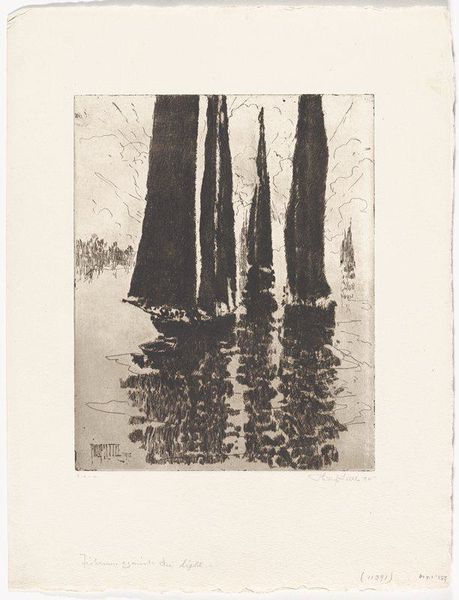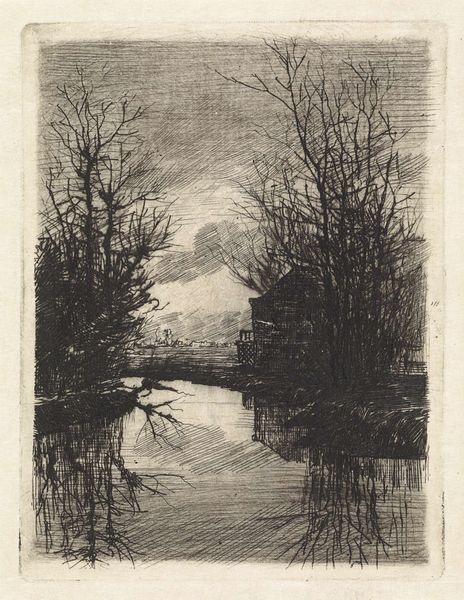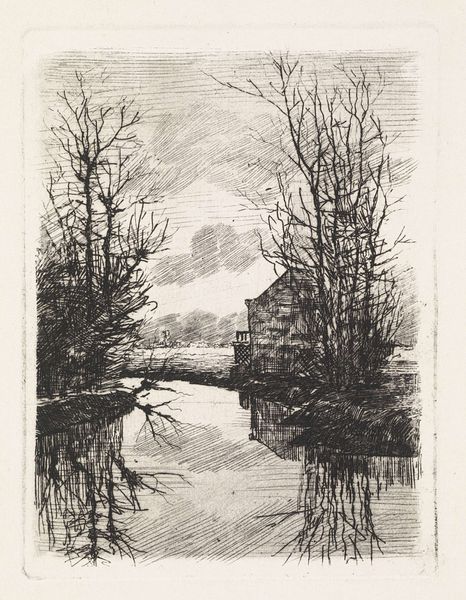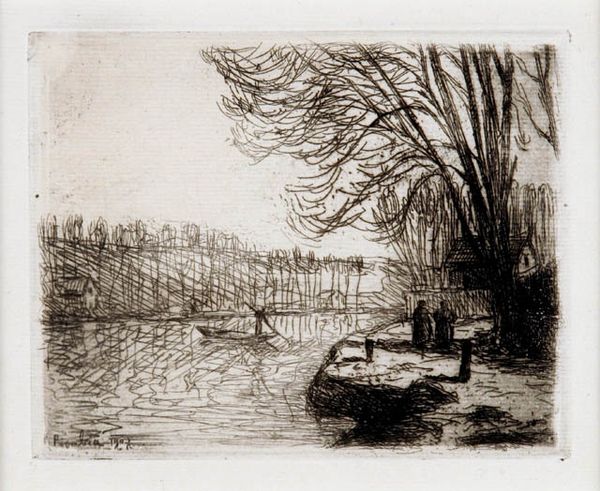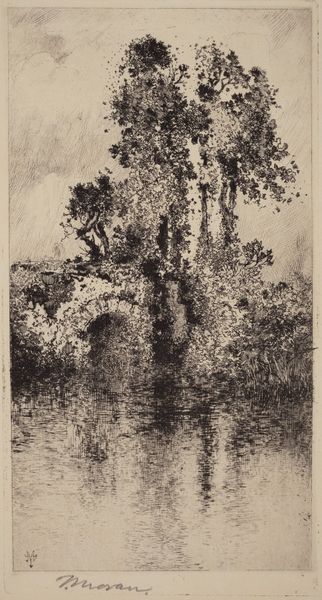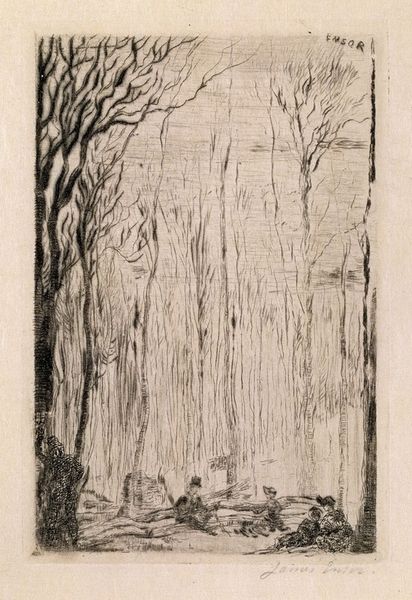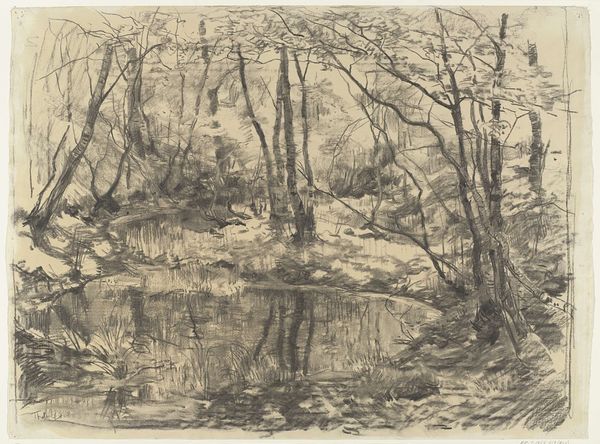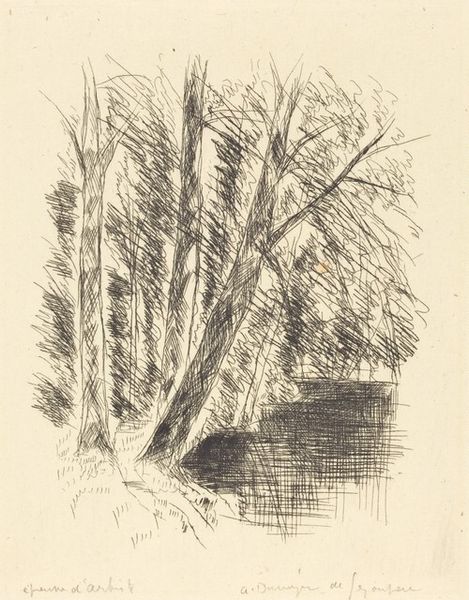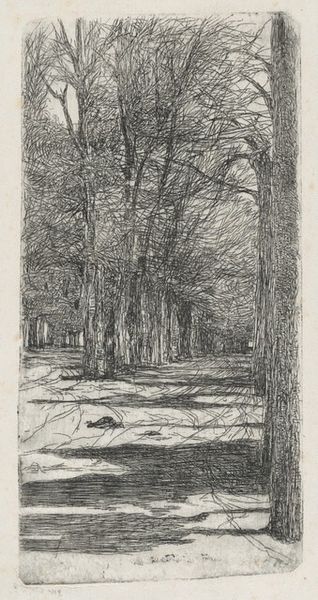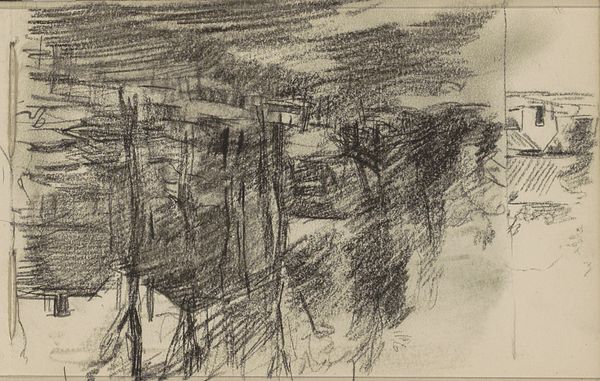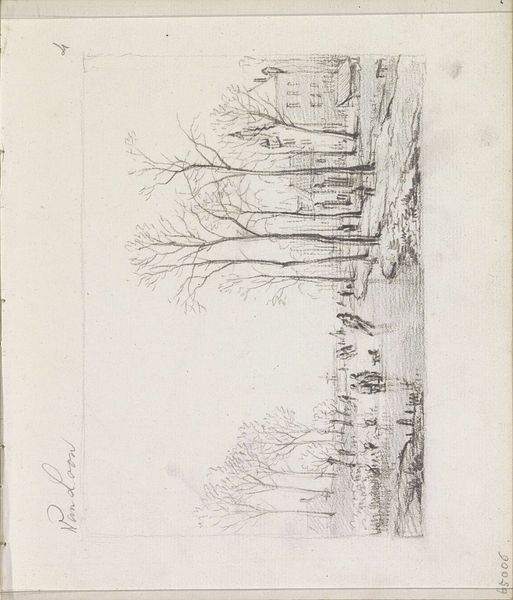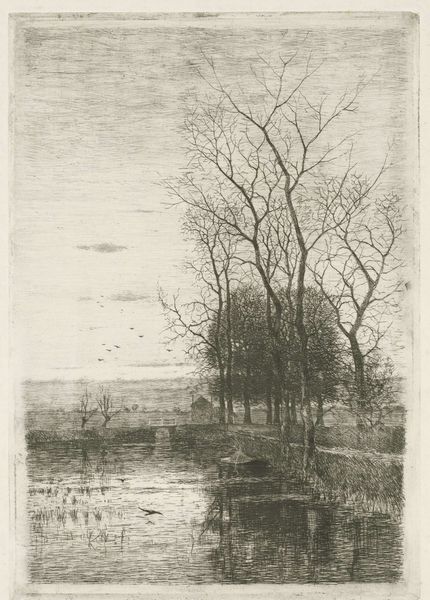
drawing, ink
#
pen and ink
#
drawing
#
ink drawing
#
landscape
#
ink
#
realism
Copyright: Public Domain: Artvee
Curator: Oh, I love this one! It’s Helen Hyde’s “Cypress Swamp” created in 1917. I find it dreamy, almost melancholic, wouldn’t you say? Editor: Absolutely, the high contrast achieved using ink and the loose, somewhat frenetic linework evoke both dynamism and decay simultaneously. I would add that its realism obscures a far more profound reflection. Curator: Tell me more about that... I am intrigued by the way Hyde's almost dancing lines give a soul to each tree. Almost as if I’m seeing it sway. Editor: Well, Hyde's positioning of this landscape within an orientalist history raises key questions. We’re witnessing the projection of an American gaze onto nature and othering landscapes which were deemed untouched or primitive in comparison to industrial spaces. What is at stake when a woman artist chooses to engage with such a trope, particularly considering her engagements in Japan? Curator: You’re so right! I never looked at it from that perspective. It changes things to consider that Hyde immersed herself in Japanese art and culture. Could it be interpreted as an adoption of Japanese aesthetic ideals through the swampy subject matter? It might even have informed the simplification and flatness of the drawing. Editor: Exactly. It begs a deeper inquiry into the political and cultural exchanges shaping art production at the time, doesn’t it? Who were these scenes *for* and what work do they do to either affirm or critique their target audiences. It is necessary to recognize that these are places undergoing development. And for whom, might I add. Curator: A critical lens definitely offers a fresh take. For me, "Cypress Swamp" now vibrates with historical layers, a subtle harmony and tension all at once. It is far more complex than its simple execution suggests. I keep looking at it now! Editor: I am happy to have invited that spark, now, and going forward, we may think of the environmental impact in these areas in ways that encourage restoration rather than erasure, wouldn’t you agree?
Comments
No comments
Be the first to comment and join the conversation on the ultimate creative platform.
